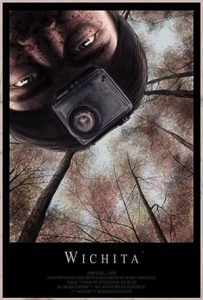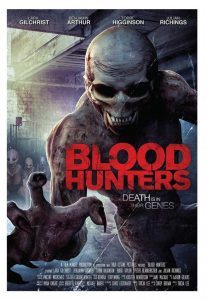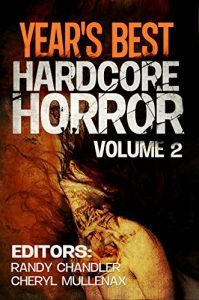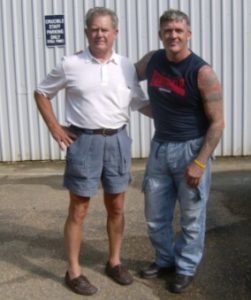David Dubrow's Blog, page 21
July 20, 2017
Frank Frazetta’s Death Dealer
 As a big fan of Frank Frazetta’s art, I was honored to write a piece with Paul Hair about Frazetta’s famous Death Dealer painting, and even more honored that Hollywood in Toto would publish it:
As a big fan of Frank Frazetta’s art, I was honored to write a piece with Paul Hair about Frazetta’s famous Death Dealer painting, and even more honored that Hollywood in Toto would publish it:
Frazetta died in 2010, but for at least a generation of fantasy fans, his oil paintings defined the aesthetic for sword-and-sorcery novels. Think huge, muscular men; curvaceous, creamy-skinned women and horrific beasts that menace both. From comic books to movie posters to the worlds of Tarzan and John Carter of Mars, his fierce fantasy depictions remain captivating.
His 1973 painting The Death Dealer became his most iconic work, used as cover art for music and books, as well as the basis for at least one novel. The piece also has been adapted into an imposing, life-size statue for III Corps, one of the higher echelon units of the U.S. Army.
Click to read the whole thing! Photographic credit goes to Paul Hair.








July 18, 2017
Forgiving Yourself: A Meditation
 I want to discuss the idea of separating you from what happened to you. There’s the you, the you reading this, and there are your experiences, and they’re not the same thing. One of my favorite expressions is, “It’s bad that it happened, but it’s worse if you don’t learn anything from it.” We look to the past for lessons, but we don’t live in the past. Being victimized doesn’t make you a victim. Staying where trauma happened makes you a victim. As someone who has experienced trauma, only you can decide that you’re a victim. Someone who experienced the same thing may call himself a survivor, or may not call himself anything at all. Self-identifying as a victim ties you to your experiences. The mantle of victimhood can only be worn voluntarily. And, in today’s society, there are great benefits to being a victim, to display one’s traumas as badges of honor. In large part, human beings love attention. With the rise of social media and the 24-hour news cycle, stardom may be one trauma away. Victims get money, sympathy, and fame: who doesn’t want that?
I want to discuss the idea of separating you from what happened to you. There’s the you, the you reading this, and there are your experiences, and they’re not the same thing. One of my favorite expressions is, “It’s bad that it happened, but it’s worse if you don’t learn anything from it.” We look to the past for lessons, but we don’t live in the past. Being victimized doesn’t make you a victim. Staying where trauma happened makes you a victim. As someone who has experienced trauma, only you can decide that you’re a victim. Someone who experienced the same thing may call himself a survivor, or may not call himself anything at all. Self-identifying as a victim ties you to your experiences. The mantle of victimhood can only be worn voluntarily. And, in today’s society, there are great benefits to being a victim, to display one’s traumas as badges of honor. In large part, human beings love attention. With the rise of social media and the 24-hour news cycle, stardom may be one trauma away. Victims get money, sympathy, and fame: who doesn’t want that?
This is not to say that people who have experienced genuine trauma should just get over it. Truly horrible things like rape, the loss of a child, a brutal assault: they require love and time to heal from, or at least endure. As human beings our worth is at least partly measured in how we care for those in need. Part of the freedom of being an adult is determining what qualifies as a trauma versus an unfortunate occurrence.
If you’re reading this, you’re probably doing okay, at least in terms of Maslow’s hierarchy of needs. You don’t lack for potable water. Perhaps you live in the West, or a Western-style country that upholds enough inalienable human rights to keep jackbooted thugs from knocking down your door and throwing you in prison over something minor. Compared to the vast majority of humanity for the vast majority of human history, you’re wealthy. So what do you have to complain about?
Not a lot. But it doesn’t mean that you haven’t had terrible experiences. And it definitely doesn’t mean that you shouldn’t learn from those experiences. Just retain that sense of perspective, that learned skill of sorting difficulties from the major (being shot at) to the nonexistent (a social media spat). Prioritizing is a learned skill. To a small child, everything’s important: a lost toy means as much as a house fire, at least in the moment. Because we’re so attached to our phones, our lifeline to social media, that perspective tends to get lost. Who Bill O’Reilly sexually harassed or what conspiracy theory Rachel Maddow is promulgating: do you really give a damn? Why does that have to take up space in your mental attic? Say you’re not political. Okay, who cares that your old high school friend didn’t Like that selfie of you and your kids at the Mets game? I know you count Likes and Favorites and Shares and Retweets: we all do. But you know they’re utterly empty, right? I mean, you know that deep down. You also know what is important: your family (if you have one), your faith (if you have one), your principles (if you have any).
So both developing that sense of perspective and maintaining it in a culture that prizes minutiae are vital to the separation of you from what happened to you. If it were easy we wouldn’t have to talk about it: we’d just do it like turning off a television.
Where this ties into children of substance abusers is that we often mature into adults with a pervasive feeling that there’s something wrong with us, whether we take up substance abuse ourselves or we don’t. That somehow our parents’ sins are written upon us in ways that others can read at a glance. That’s a function of confusing a negative experience with a negative trait. There’s nothing wrong with you, particularly the you as a child, but there was something wrong with your experience. It’s difficult to peel your self from your experiences after so long, particularly when these traumas were inflicted upon you as a child, when everything sticks and the scars run deepest. I don’t subscribe to the notion that children have special wisdom that mature adults lack, but they do feel things more strongly than adults do. And, in many respects, the subconscious is a time machine: when things happen to us today that are similar to what happened to us long ago, we often have the same emotional reactions to them that we did as youngsters. It’s difficult to escape the child’s logic: mommy drank, so there’s something wrong with me. It stays with us, even into adulthood.
That child’s logic often extends further, into self-blame: if there’s something wrong with me, it’s because of something I did. Or something I am. It doesn’t make sense to an adult, but children are adept at accepting responsibility for disparate things: step on a crack, break your mother’s back. You’re not eating your peas? What about the starving children in China? Etc. This illogic is baked into childhood. If you are something bad, owing to being the child of a substance abuser, then you need to be punished. And if the world isn’t punishing you enough, then you’ll just have to do it yourself. (Children love justice, particularly rough justice. Adults do, too.)
Once you recognize that there’s nothing wrong with you, but that there was something wrong with your experience, you can move on to the difficult step of forgiving yourself instead of punishing yourself. Call it your inner child or the Time Machine Subconscious, but you’ve got to tell that raw, injured kid that he’s okay. He didn’t do anything wrong. There’s nothing wrong with him. He’s worthy of love.







July 13, 2017
Movie Review: Wichita
 I reviewed the indie thriller/horror film Wichita at The Slaughtered Bird:
I reviewed the indie thriller/horror film Wichita at The Slaughtered Bird:
Trevor Peterson as Jeb initially comes off as a kind of bush-league Misha Collins (who is himself a bit bush-league, let’s face it), but he invests such a strange likability in the role that, despite all the horrible stuff that happens, you still want things to turn out okay for him. He’s awkward, twitchy, and vulnerable, but he has a manipulative, sinister side that makes him as frightening a villain as you’ll see outside of Mads Mikkelsen’s turn as Hannibal Lecter. The movie wisely puts him in just about every scene, even when he’s spying on the writers, which tends to normalize some pretty unacceptable behavior. He’s not good, he’s not the good guy, but he is the protagonist and there’s no movie without him.
Ah, but is the rest of the movie any good? Only one way to find out, and that’s by clicking!







July 11, 2017
Odds and Ends 7/11/2017
 Few people seem to talk about the Amazon show Fortitude in the horror circles I dip into. Is it horror? An exquisitely slow-burn thriller? I’m seven episodes in at the time of this writing and the show is hard to categorize. This can be a bad or a good thing, depending. There are horror elements to it, in addition to police procedural and mystery. I have difficulty understanding about 15% of the dialogue, what with all the accents. Stanley Tucci steals every scene he’s in, which is amazing considering the strength of all the other performances. Once I’m done the first season I may do a proper write-up, but despite its somewhat frustrating slowness it’s a show I look forward to watching each evening.
Few people seem to talk about the Amazon show Fortitude in the horror circles I dip into. Is it horror? An exquisitely slow-burn thriller? I’m seven episodes in at the time of this writing and the show is hard to categorize. This can be a bad or a good thing, depending. There are horror elements to it, in addition to police procedural and mystery. I have difficulty understanding about 15% of the dialogue, what with all the accents. Stanley Tucci steals every scene he’s in, which is amazing considering the strength of all the other performances. Once I’m done the first season I may do a proper write-up, but despite its somewhat frustrating slowness it’s a show I look forward to watching each evening.
***
Here’s a fragment of conversation I had with my son as we took a walk around the neighborhood not too long ago:
Sonny Boy: I can’t wait to go to gramma and grandpa’s.
Me: I’m sure you’ll have a lot of fun there.
Sonny Boy: Yeah. I’ll miss you and Mommy.
Me: You’ll be too busy having fun to miss us. But if you do, it’s okay. We’ll miss you, too.
Sonny Boy: I know your parents are dead. Do you miss yours mommy?
Me: *thinking* Yes.
He didn’t notice the long pause before my answer, or if he did, I’m certain he didn’t know how to interpret it. How could I tell him that I miss the person my mother was supposed to be instead of who she was? My wife, Sonny Boy’s mother, is a great example of who a mother is supposed to be; I thank God every day that Sonny Boy has her as his mom and doesn’t have a different experience. It’s taken me decades to learn, understand, and internalize the truth that people are not their experiences. There may be something wrong with your experience of something, but it doesn’t mean there’s something wrong with you. Many children of substance abusers don’t accept this, but grasping it is vital to achieving that one thing so many find impossible to do: forgive yourself.
Amazing how a simple question from a little boy can get the gears going.
***
Netflix recommended that I see the movie Bokeh, because it’s got an end-of-the-world flavor to it and I’m kind of partial to that. In it, two lovers vacationing in Iceland wake up one morning to find that they’re the last people on the planet. Where the movie succeeds is in the cinematography, where beautiful scenery is captured in rich hues. Where the movie fails is in everything else. In narrative, ideas, core, and tension, it’s as empty as the world the two lovers find themselves in. The protagonists embody every nightmarish thought Generation X and Boomers have about the millennial generation, down to the bearded hipster with his retro camera and the impossible-to-please girl who hints at a religious upbringing without having taken anything away from it. Watching it with the sound on or off makes no difference. No questions are answered, and few are asked. Despite all that, you might like it. If you watch it, drop me a line and let me know where I went wrong.







July 6, 2017
Movie Review: Blood Hunters
 I reviewed the horror film Blood Hunters at The Slaughtered Bird:
I reviewed the horror film Blood Hunters at The Slaughtered Bird:
The story mixes the familiar with some interesting twists: single mother Ellie collapses from a drug overdose and wakes up in a hospital that’s full of horrific monsters that hunt for…wait for it…blood. Oh, and she’s nine months pregnant, despite not having been in a family way prior to her collapse. She meets other people, stumbles over dead bodies, and horror hijinks ensue.
Read the entire review to see if the movie’s worth your time!







July 4, 2017
Happy Independence Day 2017
 It’s the 4th of July, AKA First Brexit, AKA Independence Day!
It’s the 4th of July, AKA First Brexit, AKA Independence Day!
While we Americans celebrate our independence from King George’s tyranny and the founding of the greatest nation on Earth, consider this question:
What is liberty?
Think about it and remember that any definition of a term can’t include the term in the definition. So you can’t define liberty as freedom, or use the word freedom or any of its synonyms in your answer.
So, what is it?
Some time ago, Mark Levin asked this question on his radio program, and while I didn’t listen to his answer (if he gave it), it did provide some food for thought. As best as I can figure out, liberty is the ability to exercise the God-given/natural rights we were all born with as human beings. The U.S. Constitution, as incredible and important a document as it is, doesn’t grant these rights. Only God can. The Constitution enshrines them. It describes and lists them, particularly in the first ten Amendments to the Constitution, also known as The Bill of Rights.
The U.S. government doesn’t grant these rights, either. No matter where you live you were born with natural rights. All the government can do is either protect these rights or limit them. Your liberty is very much a zero-sum proposition: the more liberty taken from you, either as a result of over-regulation by hostile government entities or the curtailing of your rights by ever-more restrictive laws, the less you have overall. America’s success as a nation isn’t coincidental. It’s this acknowledgment of the importance of personal freedom and where it comes from that makes us great.
Happy 4th, and God bless.







June 29, 2017
Odds and Ends 6/29/2017
 At long last, the first draft of The Holy Warrior and the Last Angel is finished, the concluding volume to the trilogy that started with The Blessed Man and the Witch. Between daily life throwing up its inimitable roadblocks and, no doubt, at least some subconscious desire on my part for the project to never end, I have nevertheless persisted. This draft is a particularly messy one because, owing to frustration at my own glacial progress, I wrote at least 2/3 of it in writing “sprints,” where I’d just set a timer for a select number of minutes and write like mad without editing or correcting any of it. So it’s rough. Still, it’s workable. I’m looking forward to polishing it up.
At long last, the first draft of The Holy Warrior and the Last Angel is finished, the concluding volume to the trilogy that started with The Blessed Man and the Witch. Between daily life throwing up its inimitable roadblocks and, no doubt, at least some subconscious desire on my part for the project to never end, I have nevertheless persisted. This draft is a particularly messy one because, owing to frustration at my own glacial progress, I wrote at least 2/3 of it in writing “sprints,” where I’d just set a timer for a select number of minutes and write like mad without editing or correcting any of it. So it’s rough. Still, it’s workable. I’m looking forward to polishing it up.
This is a horrible story about a woman who was burned alive by her former boyfriend, lived in agony for two years, and died in the hospital. The boyfriend, Michael Slager, has only gotten an eleven-year sentence for the crime, but now attorneys are going to charge him with murder. Note this comment, however: “God bless her soul. Prayers for her daughters. Very sad and unbelievable what we as humans do to one another.” It’s silly to have to point this out, but we didn’t do anything. Humans didn’t do anything. One particular person did this to another person. I won’t accept blame here, and if you’re not Michael Slager, you shouldn’t either. I’ve written about this before. It’s blaming the victim for what the perpetrator did and it has to stop.
If your heart hasn’t been wrenched enough this week, here’s another piece that’ll do it for you. It’s very hard to read, but we grow through discomfort, not ease.
Last week I said that calls for civility were ludicrous in the wake of the Scalise shooting because violence-provoking rhetoric works and the people who engage in it like doing it. With that in mind, I wanted to show you this Tweet by left-wing wunderkind Nate Silver:
"You can't talk about people DYING from losing access to health care" might literally be the dumbest argument in the history of the Internet pic.twitter.com/clxckojyF9
— Nate Silver (@NateSilver538) June 27, 2017
So the eliminationist rhetoric is baked into the very issue. If you have a differing opinion you’re going to kill people, full stop. Get on board with my side or you’re going to be responsible for the deaths of countless innocents. It’s blood money. It’s been a while since an actor did what Booth did. Your disagreement is hate and you should be murdered for it: that’s the state of rhetoric as it’s being practiced today.
I’ve got a horror movie review coming up next week, maybe two.







June 27, 2017
Book Review: Year’s Best Hardcore Horror Volume 2
 I reviewed Year’s Best Hardcore Horror Volume 2 at The Slaughtered Bird:
I reviewed Year’s Best Hardcore Horror Volume 2 at The Slaughtered Bird:
The overarching theme of YEAR’S BEST HARDCORE HORROR VOLUME 2 is quantity over quality. This doesn’t make it a bad book, but many of its stories sacrifice plot for rote, graphic imagery. Hardcore horror, as it’s presented in this collection, isn’t dissimilar to hardcore pornography. Who cares about the pizza guy’s internal dialogue when the customer’s door opens to reveal a woman wearing nothing but heels and a smile? We just want to see them get it on. That’s YBHHV2, in large part: to Hell with the story; let’s fast forward to the gross parts.
Is Volume 2 worth your time? Click to find out!







June 22, 2017
RIP, Peder Lund
 Peder Lund (L) and Lee Morrison (R)
Peder Lund (L) and Lee Morrison (R)For about twelve years I was employed by Paladin Press, a mail-order publishing company in Boulder, Colorado. The stories I could tell, from my unorthodox job interview to my departure on a cold December morning before 6:00 AM could fill a book. A book few people would want to read, so I won’t put anyone through the experience of it. Nevertheless, I did work for what was called “The most dangerous publisher in America” for quite some time, and lived on the bleeding edge of First (and Second) Amendment issues long before today’s crop of free-speech warriors graced the nascent pages of the internet.
Paladin’s early history can be found here.
I recently learned that Peder Lund, Paladin Press’s owner and publisher, died in Finland on June 3.
He was generous and a good man to work for. Few people have TV movies made about their business.
Rest in peace, Peder.







June 20, 2017
Calls for Civility Are Ludicrous
 This is going to get political. If politics aren’t your thing, hang on; later this week I hope to have a book review up.
This is going to get political. If politics aren’t your thing, hang on; later this week I hope to have a book review up.
By now you’re probably familiar with what happened on June 14, 2017: a man named James Thomas Hodgkinson went to an athletic field where a number of Republican congressmen were practicing for a baseball game and shot at them, wounding several. Hodgkinson, a left-wing Bernie Sanders supporter, did this because he wanted to kill Republicans. In all respects this was a political assassination attempt, and it’s only due to the bravery of Congressman Steve Scalise’s security detail (and Hodgkinson’s horrible marksmanship) that more people weren’t shot and killed. The only casualty was Hodgkinson.
Predictably, we’ve been subject to a number of calls for civility in the wake of the shooting, as well as demands to cool heated political rhetoric. And, just as predictably, these calls are a gigantic, ridiculous waste of air.
The Paper of Record, The New York Times, ran a recent editorial that attempted a disgusting moral equivalence between Hodgkinson’s attempted murder of Republicans and Jared Lee Loughner’s shooting of Democrat Congresswoman Gabby Giffords. The Times claimed that Loughner shot Giffords because of a graphic that Sarah Palin, a Republican and a former governor of Alaska, posted online featuring crosshairs on several Congressional districts. Loughner, a delusional lunatic, had been obsessed with Giffords for years prior to Palin’s graphic having been uploaded, thought that grammatical rules are forms of mind control, and was by all accounts a committed leftist. Also, nobody knows if he had ever seen Palin’s graphic. So this equivalence is utterly false, and despite the NYT’s later retraction, shows a disturbing, denial-based mindset.
Scott Pelley of CBS asked if Steve Scalise’s near-mortal injury was in some way self-inflicted.
MSNBC host Joy Reid Tweeted this:
Rep. #Scalise was shot by a white man with a violent background, and saved by a black lesbian police officer, and yet… #AMJoy pic.twitter.com/Qm96T90c6Y
— AM Joy w/Joy Reid (@amjoyshow) June 17, 2017
So The New York Times tries to deflect, and CBS and MSNBC think that Steve Scalise had it coming because he’s a Republican.
Well, this doesn’t mean that everyone on the left agrees with this loathsome Joy Reid character, for example. Only approximately 9800 people, give or take. Maybe more, when you count her television audience. But it’s not the entire left wing, is it? Perhaps not. And yet…
Republican opposition to Obamacare, and the subsequent passage of Trumpcare/Ryancare in the Republican-led House of Representatives has led Democrat party politicians to claim that Republicans want people who are sick to die. They loudly proclaim that Republicans want to take health care and health insurance away from anyone who isn’t wealthy.
When Trump pulled the U.S. out of the Paris Climate Accord, Democrat politicians claimed that Republicans want everyone in the world to have filthy air, dirty water, and polluted land. Similar apocalyptic claims have been echoed throughout the news and entertainment media.
Putting it all together, we have an illegitimate president (because the Russians stole the election from Hillary Clinton and gave it to Trump) who’s trying to destroy the world with pollution, and he’s aided by a political party that hates everyone and wants them to die. That’s the picture being painted by the news media, the Democrat party, and the loudest voices in entertainment.
If you believe this story, then it’s not a big leap to decide to start killing your ideological opponents wherever you find them. After all, the fate of the very planet is at stake. You’d be a hero. You’d be stopping the Republican-caused apocalypse. Who cares about a time machine that allows you to kill Hitler in the crib? You can do the same thing right now and be a hero for it, celebrated by the likes of famous people like George Takei and Scott Pelley and Joy Reid.
The progressive left doesn’t want civility. It doesn’t want to address competing policies in the arena of ideas. It’s decided that the only way to communicate is through the most vitriolic, eliminationist rhetoric ever voiced in the public square. If you disagree with a progressive, it’s because you want someone else to die. It’s that simple. Your disagreement is hate. Hell, even delicious chicken sandwiches are hate. And we know what you do with those hateful chicken sandwiches, don’t we?
So the calls for civility are insincere, at best. The intent with such demands is to silence opposition while staying on the attack. It’s silly to decry the polarization of our culture in one breath and then claim that your ideological adversaries hate you and want to kill your children in the next.
What to do? Usually I like to end a piece like this with a call to action. “Get on the field and fight,” or “stock up on dogs, guns, and canned food.” Something like that. For this, though, there is no remedy. No fix. How do you persuade someone who’s being conditioned to hate you that you’re not worth their hate? It’s like trying to prove a negative. And it’s not hate if you hate evil; in fact, it’s a good thing to hate the hateful. It shows your virtue. You want to save the planet, don’t you? Get out there and punch a Nazi. Kill Hitler in the crib. Make a difference.
We haven’t seen the end of ideologically-driven violence. The partisan divide won’t narrow any time soon. Nobody wants it to, particularly our betters in the news industry, politics, and entertainment media.










